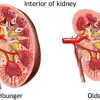Can Kidney Disease be Prevented?
Introduction
Kidney disease is a serious health condition that affects millions of people worldwide. It is characterized by the gradual loss of kidney function over time, leading to the accumulation of waste products and fluid imbalances in the body. While some cases of kidney disease are genetic or caused by other underlying health conditions, many cases can be prevented through lifestyle modifications and early detection. In this article, we will dive deep into the topic of kidney disease prevention and explore the various steps you can take to keep your kidneys healthy.
Understanding Kidney Disease
Before we discuss prevention, let’s first understand what kidney disease is and how it develops. The kidneys are vital organs responsible for filtering waste products and excess fluids from the blood, regulating blood pressure, and maintaining the balance of electrolytes in the body. When the kidneys are damaged or unable to perform their functions effectively, kidney disease can occur.
There are two main types of kidney disease:
- Acute Kidney Injury (AKI): This is a sudden and temporary loss of kidney function caused by factors such as dehydration, infections, medication side effects, or trauma. Prompt medical attention and treatment can often reverse AKI.
- Chronic Kidney Disease (CKD): This is a progressive and long-term condition where the kidneys gradually lose their ability to function properly. CKD is usually caused by underlying health conditions like diabetes, hypertension, or autoimmune diseases. It requires ongoing management and may progress to end-stage renal disease (ESRD) if left untreated.
Risk Factors for Kidney Disease
Certain factors can increase a person’s risk of developing kidney disease. These include:
- Diabetes: Diabetes is one of the leading causes of kidney disease. High blood sugar levels can damage the blood vessels in the kidneys, impairing their function over time.
- Hypertension: Uncontrolled high blood pressure can harm the blood vessels and filters in the kidneys, leading to kidney damage.
- Obesity: Excess body weight puts strain on the kidneys, increasing the risk of kidney disease.
- Smoking: Smoking damages blood vessels and reduces blood flow to the kidneys, increasing the risk of kidney disease.
- Family History: A family history of kidney disease or related conditions may increase the risk of developing kidney disease.
- Age and Gender: The risk of kidney disease increases with age, and men tend to be at a slightly higher risk than women.
Preventing Kidney Disease
While some risk factors for kidney disease, such as age and family history, cannot be controlled, there are several lifestyle changes you can make to reduce your risk of developing kidney disease. Here are some key preventive measures:
- Control Blood Sugar Levels: If you have diabetes, it’s crucial to keep your blood sugar levels under control. Monitor your blood glucose regularly, take prescribed medication, follow a healthy diet, and engage in regular physical activity to manage diabetes effectively.
- Maintain a Healthy Blood Pressure: High blood pressure can damage the kidneys over time. Adopt a low-sodium diet, limit alcohol consumption, exercise regularly, and take prescribed medications to manage hypertension.
- Eat a Balanced Diet: A healthy, balanced diet plays a vital role in kidney health. Include plenty of fruits, vegetables, whole grains, lean proteins, and healthy fats in your meals. Limit your intake of processed foods, saturated fats, and added sugars.
- Stay Hydrated: Drinking an adequate amount of water helps maintain proper kidney function. Aim to drink at least 8-10 glasses of water per day, or more if you engage in physical activity or live in a hot climate.
- Quit Smoking: Smoking is harmful to every organ in the body, including the kidneys. Seek support, use nicotine replacement therapies if needed, and quit smoking to reduce your risk of kidney disease.
- Maintain a Healthy Weight: Obesity can strain the kidneys and increase the risk of kidney disease. Aim for a healthy weight by following a balanced diet and engaging in regular physical activity.
- Exercise Regularly: Regular physical activity helps maintain overall health and reduces the risk of chronic conditions like diabetes and hypertension that can lead to kidney disease. Aim for at least 150 minutes of moderate-intensity aerobic exercise per week.
- Limit Alcohol Consumption: Excessive alcohol consumption can damage the kidneys. If you choose to drink, do so in moderation, following the recommended guidelines.
- Avoid Overuse of Medications: Certain medications, such as nonsteroidal anti-inflammatory drugs (NSAIDs) and certain antibiotics, can cause kidney damage if taken in high doses or for a prolonged period. Use medications as prescribed and consult your doctor for any concerns.
- Regular Health Check-ups: Regular visits to your healthcare provider can help detect any early signs of kidney disease. Blood and urine tests can assess kidney function and identify any abnormalities.
By adopting these preventive measures and making healthy lifestyle choices, you can significantly reduce your risk of developing kidney disease.
Fitpaa – Your Partner in Kidney Health
If you’re looking for personalized support and guidance in maintaining optimal kidney health, Fitpaa is here to help. With our AI-driven Metabolism Monitoring and Management Technology, we can provide you with a comprehensive assessment of your current metabolism. Our expert team of fitness coaches, nutritionists, and doctors can then create a personalized Fitpaa Capsule tailored to your specific needs and goals.
The Fitpaa Capsule combines medical therapy, medical exercise therapy, medical nutrition therapy, and cognitive behavior therapy to optimize your metabolism and help you achieve your health and fitness goals. Our Fitpaa mobile app with real-time guidance technology, workout trainers, diet trackers, and progress tracking tools can assist you in following your personalized plan effortlessly.
We understand the importance of kidney health and offer specialized guidance to individuals with kidney-related concerns. Our Fitpaa Capsule can be modified to address specific dietary restrictions, hydration needs, and exercise requirements for individuals with kidney disease or those at risk.
Download the Fitpaa app today and take control of your kidney health with our evidence-based approach and personalized guidance. Remember, prevention is key, and with Fitpaa by your side, you can achieve your health and fitness goals while safeguarding your kidneys.
Note: Fitpaa services are not a substitute for medical advice. If you have any existing health conditions or concerns, please consult your healthcare provider before making any significant changes to your lifestyle or starting a new fitness program.









